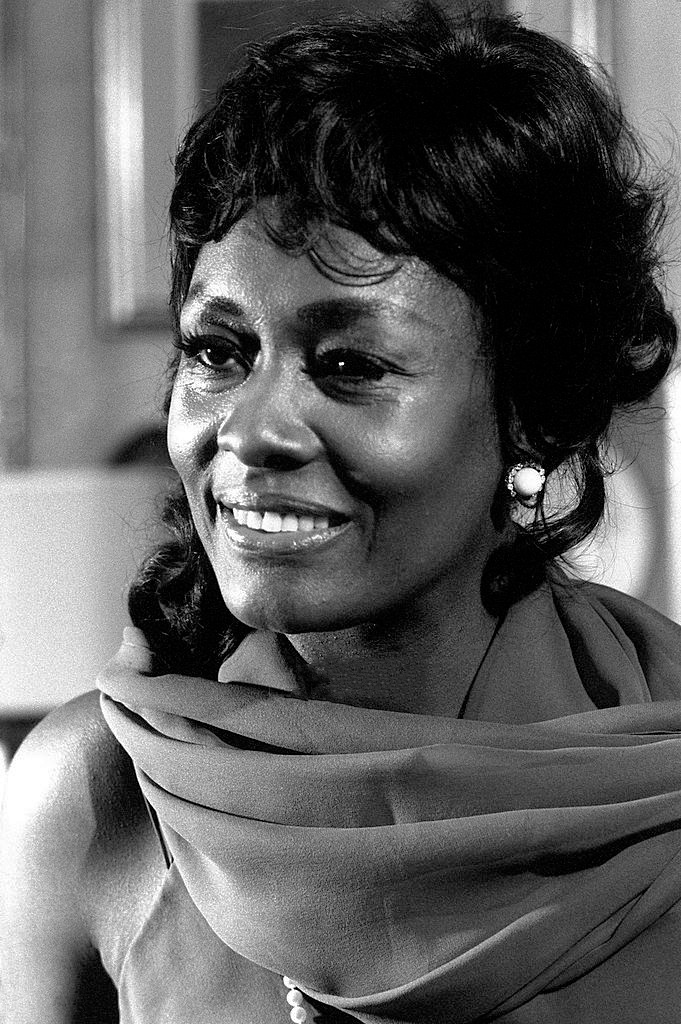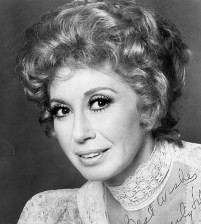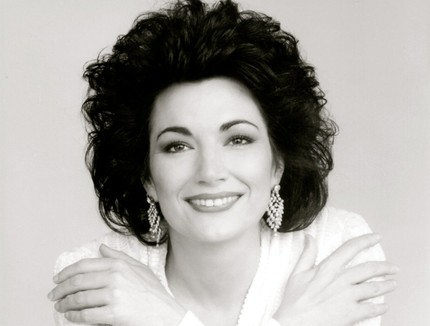
Shirley Verrett |
Shirley Verrett
“Black Callas” is no more. She left this world on November 5, 2010. The loss of Shirley Verret from a series of irreparable.
Anyone familiar with the famous novels of the South, whether it be Margaret Mitchell’s Gone With the Wind or Maurice Denouzier’s Louisiana, will be familiar with many signs of Shirley Verrett’s life. She was born on May 31, 1931 in New Orleans, Louisiana. This is the real American South! The cultural heritage of the French colonialists (hence the impeccable command of the French language, which was so captivating when Shirley sang “Carmen”), the deepest religiosity: her family belonged to the Seventh-day Adventist sect, and her grandmother was something of a shaman, animism among Creoles is not uncommon. Shirley’s father had a construction company, and when she was a girl, the family moved to Los Angeles. Shirley was one of five children. In her memoirs, she wrote that her father was a good man, but punishing children with a belt was a common thing for him. Peculiarities of Shirley’s origin and religious affiliation created difficulties for her when the prospect of becoming a singer loomed on the horizon: the family supported her choice, but treated the opera with condemnation. Relatives would not interfere with her if it was about the career of a concert singer like Marian Anderson, but opera! She began studying music in her native Louisiana and continued her education in Los Angeles to complete her studies at the Juilliard School in New York. Her theatrical debut was in Britten’s The Rape of Lucrezia in 1957. In those days, colored opera singers were rare. Shirley Verrett had to feel the bitterness and humiliation of this situation in her own skin. Even Leopold Stokowski was powerless: he wanted her to sing Schoenberg’s “Gurr’s Songs” with him in a concert in Houston, but the orchestra members rose to the death against the black soloist. She spoke about this in her autobiographical book I Never Walked Alone.
In 1951, the young Verret married James Carter, who was fourteen years older than her and showed himself to be a man prone to control and intolerance. On the posters of that time, the singer was called Shirley Verrett-Carter. Her second marriage, with Lou LoMonaco, was concluded in 1963 and lasted until the artist’s death. It was two years after her Metropolitan Opera audition win.
In 1959, Verrett made her first European appearance, making her debut in Cologne in Nicholas Nabokov’s The Death of Rasputin. The turning point in her career was 1962: it was then that she performed as Carmen at the Festival of Two Worlds in Spoleto and soon made her debut at the New York City Opera (Irina in Weil’s Lost in the Stars). In Spoleto, her family attended the performance of “Carmen”: her relatives listened to her, falling on their knees and asking for forgiveness from God. In 1964, Shirley sang Carmen on the stage of the Bolshoi Theatre: an absolutely exceptional fact, considering that this happened at the very height of the Cold War.
Finally, the ice was broken, and the doors of the most prestigious opera houses in the world opened for Shirley Verrett: in the 60s, her debuts took place in Covent Garden (Ulrika in the Masquerade Ball), at the Comunale Theater in Florence and the Metropolitan Opera in New York (Carmen), at the La Scala Theater (Dalila in Samson and Delilah). Subsequently, her name adorned the posters of all other prestigious opera houses and concert halls in the world: the Paris Grand Opera, the Vienna State Opera, the San Francisco Opera, the Chicago Lyric Opera, Carnegie Hall.
In the 1970s and 80s, Verrett was closely associated with Boston Opera conductor and director Sarah Calwell. It is with this city that her Aida, Norma and Tosca are associated. In 1981, Verrett sang Desdemona in Othello. But her first foray into the soprano repertoire took place as early as 1967, when she sang the part of Elizabeth in Donizetti’s Mary Stuart at the Florentine Musical May festival. The “shift” of the singer in the direction of soprano roles caused a variety of responses. Some admiring critics considered this a mistake. It has been argued that the simultaneous performance of mezzo-soprano and soprano pianos led her voice to “separate” into two separate registers. But Verrett also suffered from an allergic disease that caused bronchial obstruction. An attack could “mow” her unexpectedly. In 1976, she sang the part of Adalgiza at the Met and, just six weeks later, on tour with his troupe, Norma. In Boston, her Norma was greeted with a huge standing ovation. But three years later, in 1979, when she finally appeared as Norma on the stage of the Met, she had an allergic attack, and this negatively affected her singing. In total, she performed on the stage of the famous theater 126 times, and, as a rule, was a great success.
In 1973 the Metropolitan Opera opened with the premiere of Les Troyens by Berlioz with John Vickers as Aeneas. Verrett not only sang Cassandra in the first part of the opera duology, but also replaced Christa Ludwig as Dido in the second part. This performance has remained forever in opera annals. In 1975, at the same Met, she won success as Neocles in Rossini’s The Siege of Corinth. Her partners were Justino Diaz and Beverly Sills: for the latter it was a long-delayed debut on the stage of the most famous opera house in the United States. In 1979 she was Tosca and her Cavaradossi was Luciano Pavarotti. This performance was televised and released on DVD.
Verrett was the star of the Paris Opera, who specially staged Rossini’s Moses, Cherubini’s Medea, Verdi’s Macbeth, Iphigenia in Tauris and Gluck’s Alceste. In 1990, she participated in the production of Les Troyens, dedicated to the celebration of the XNUMXth anniversary of the storming of the Bastille and the opening of the Bastille Opera.
Theatrical triumphs of Shirley Verrett were not fully reflected in the record. At the beginning of her career, she recorded at RCA: Orpheus and Eurydice, The Force of Destiny, Luisa Miller with Carlo Bergonzi and Anna Moffo, Un ballo in maschera with the same Bergonzi and Leontine Price, Lucrezia Borgi with the participation Montserrat Caballe and Alfredo Kraus. Then her exclusive with RCA ended, and since 1970 recordings of operas with her participation were released under the labels of EMI, Westminster Records, Deutsche Grammophon and Decca. These are Don Carlos, Anna Boleyn, Norma (Adalgisa’s part), Siege of Corinth (Neocles’ part), Macbeth, Rigoletto and Il trovatore. Indeed, the record companies have paid little attention to her.
Verrett’s brilliant and unique career came to an end in the early 1990s. In 1994, Shirley made her Broadway debut as Netti Fowler in Rodgers and Hammerstein’s musical Carousel. She has always loved this kind of music. The climax of Natty’s role is the song “You’ll Never Walk Alone”. These paraphrased words became the title of Shirley Verrett’s autobiographical book, I Never Walked Alone, and the play itself won five Tony Awards.
In September 1996, Verrett began teaching singing at the University of Michigan’s School of Music, Theater and Dance. She has given master classes in the United States and Europe.
Shirley Verrett’s voice was an unusual, unique voice. This voice, most likely, could not be considered large, although some critics characterized it as “powerful”. On the other hand, the singer had a sonorous timbre, impeccable sound production and a very individual timbre (it is precisely in its absence that the main trouble of modern opera singers!). Verrett was one of the leading mezzo-sopranos of her generation, her interpretations of such roles as Carmen and Delilah will forever remain in the annals of opera. Unforgettable are also her Orpheus in Gluck’s opera of the same name, Leonora in The Favorite, Azucena, Princess Eboli, Amneris. At the same time, the absence of any difficulties in the upper register and sonority allowed her to successfully perform in the soprano repertoire. She sang Leonora in Fidelio, Celica in The African Woman, Norma, Amelia in Un ballo in maschera, Desdemona, Aida, Santuzza in Rural Honour, Tosca, Judit in Bartók’s Bluebeard Duke’s Castle, Madame Lidoin in “Dialogues of the Carmelites” Poulenc. Particular success accompanied her in the role of Lady Macbeth. With this opera she opened the 1975-76 season at the Teatro alla Scala directed by Giorgio Strehler and directed by Claudio Abbado. In 1987, Claude d’Anna filmed an opera with Leo Nucci as Macbeth and Riccardo Chailly as conductor. It will not be an exaggeration to say that Verrett was one of the best performers of the role of the Lady in the entire history of this opera, and goosebumps still run through the skin of a sensitive listener from watching the film.
Verrett’s voice can be classified as a “falcon” soprano, which is not easy to characterize clearly. It is a cross between a soprano and a mezzo-soprano, a voice especially favored by nineteenth-century French composers and Italians who wrote operas for the Parisian stage; parts for this type of voice include Celica, Delilah, Dido, Princess Eboli.
Shirley Verret had an interesting appearance, a lovely smile, stage charisma, a real acting gift. But she will remain in the history of music also as a tireless researcher in the field of phrasing, accents, shades and new means of expression. She attached particular importance to the word. All these qualities have given rise to comparisons with Maria Callas, and Verrett was often referred to as “La nera Callas, the Black Callas”.
Shirley Verrett said goodbye to the world on November 5, 2010 in Ann Arbor. She was seventy nine years old. Vocal lovers can hardly count on the appearance of voices like her voice. And it will be difficult, if not impossible, for singers to perform as Lady Macbeth.





